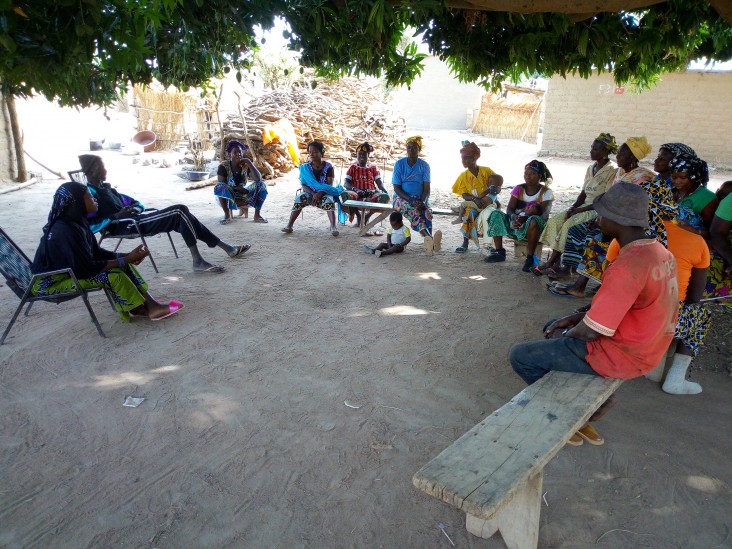Speeches Shim

Thanks to USAID/Mali SIRA, Kodiougou is one village whereby communities give high priority to the education of children, especially girls.
In Kodiougou village, in the south of Mali- Sikasso region, the community showed little interest in the education of their children. The involvement of parents went only as far as their children’s school enrollment. Girl’s schooling was perceived as a waste of time, because the perception was that school prevented them from doing household chores. Sitan Sangaré, mother, explains: “My life and my daily reality are a result of the fact that I am a woman and I am illiterate.”
In January 2019, USAID’s Selective Integrated Reading Activity (SIRA) introduced the pilot phase of its community participation component in the village. Through its awareness-raising activities, changes began to be noticeable: there was more of a gender balance at meetings, people’s view about the position of women in society slowly began to evolve such that women’s voices began to count in decision-making about the education of their children. Whereas before SIRA, women barely participated in public meetings, they are now regulars and particularly vocal when it comes to education. The women’s group got together in support of the project’s activities. They started conducting home visits, mobilizing parents and the community during training sessions, organizing general assemblies and monitoring children’s learning at home.
As a result, attitudes in the community towards educating children and especially girls—whose enrollment rates now match those of boys—have changed. Ms. Minata Sangaré, member of the group, praises the initiative: “SIRA teaches parents techniques they need to help their children learn to read and write, they provide us with the booklets. To be illiterate is to live in the dark. Therefore, I will do everything in my power to not only enroll my children, but also ensure that they attend school regularly and do not drop out.”
“With the support of women, our children’s reading and writing skills have improved. Within two months, they were able to correctly write the names of people and objects. Enrollment rates have increased. In the first year of the project, boys outnumbered girls, but in the second year, the number of boys and girls was equal for the first time since the creation of our school”. - Souleymane Sangaré, Community volunteer, Kodiougou
The group initiated meetings with parents of children in grades 1 and 2, and this led to the successful use by parents of the family-school link booklet (Mansa cɛsirijala in Bamanakan). The group holds meetings frequently and reviews the extent to which parents use the booklet: “I regret that I had to stop my studies. I do not wish the same fate for my children. I will do everything possible to ensure that they complete their studies. We are so grateful to the project for the materials and technical skills they have made available to us for the well- being of our children”. Ali Diakité, father, adds: “On the first exam, my child ranked 7th. I was unhappy and thought that the SIRA approach to learning disadvantaged him. I was made aware of these learning methods and started to help him using the Mansa Cɛsirijala booklet. At the next exam, he ranked 2nd. I will continue to support him at home”. Today, 70% of parents in SIRA’s intervention areas use the Mansa Cɛsirijala to help their children learn at home.
With the momentum in place to improve children’s learning in the village, parents like Bakary Diabaté, are committed: “I wish I went to school. I will do everything to help the children of this village. From now on, I will keep my daughters in school. I will continue to encourage other parents to do the same. Today, many parents understand that even if they are illiterate, they can still help their children.”
Because of its level of commitment, Kodiougou was the first village to be chosen for a community library in Garalo. Diabaté Oumou Sangaré, community volunteer, is grateful: “The trainings helped me master the alphabet. Our community library worked well as it benefitted from the effective involvement of women who promoted children’s participation. The group has tasked two members with the responsibility of monitoring children’s enrollment in class and their attendance at the community library.”
SIRA, which runs from 2016 to 2021, aims to increase the involvement of parents, communities and the private sector in improving the teaching and learning of reading and writing in Bamanankan language in first and second grades in nearly 4,000 schools in the regions of Koulikoro, Sikasso, Ségou and the district of Bamako.

Comment
Make a general inquiry or suggest an improvement.